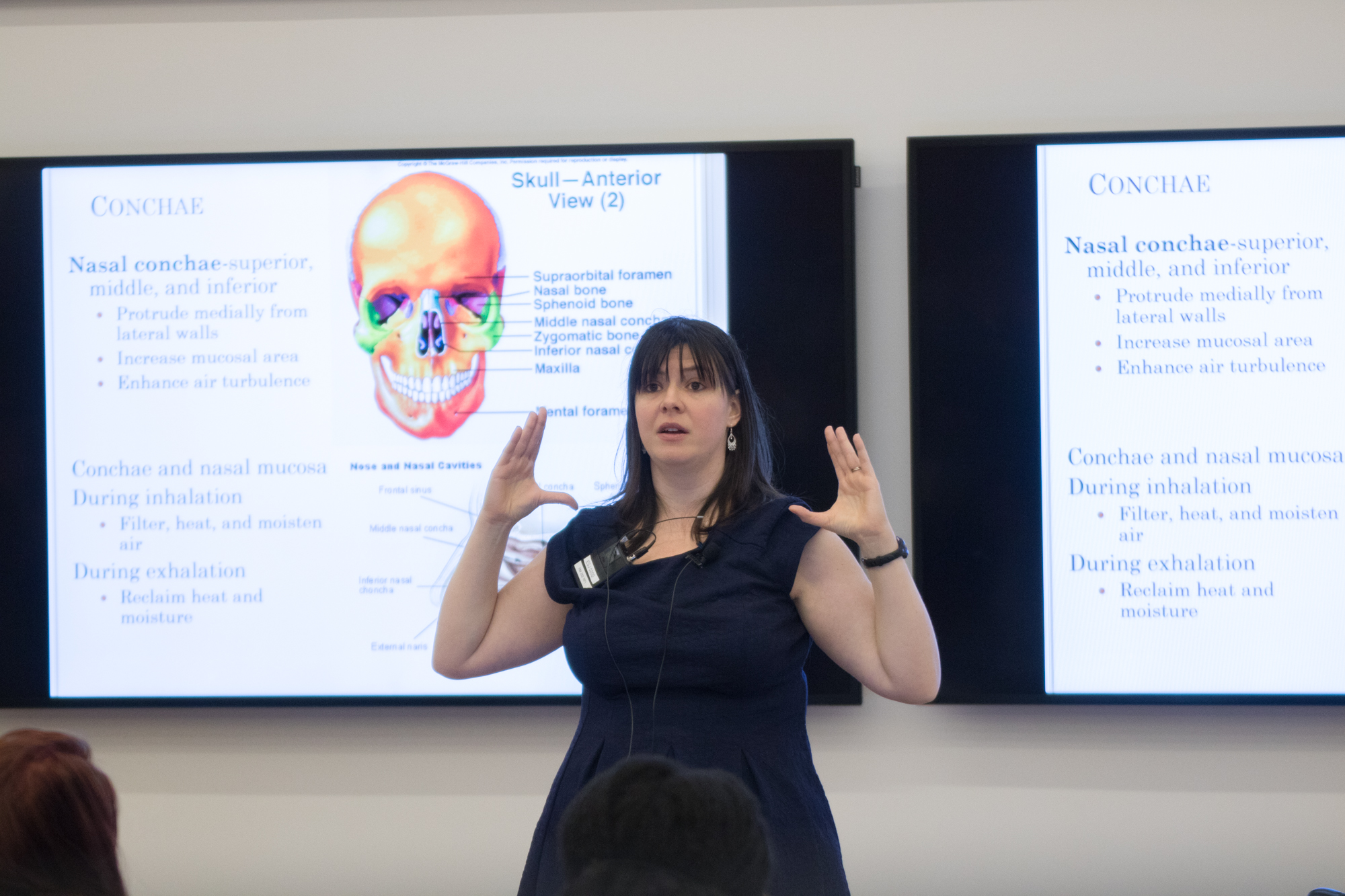Two University of Maryland biology courses will be among many in the University System of Maryland to offer students free online textbook access next year with the help of a system grant program.
BSCI201 and 202, introductory courses in human anatomy and physiology, will use a free, open-source textbook from OpenStax beginning in the fall, said biology professor Sara Lombardi.
To make the switch, university lecturers for the courses received a $1,500 grant from the Maryland Open Source Textbook initiative, which offers grants to encourage faculty to utilize open educational resources. The grants were announced March 6.
The initiative — which was established in 2013 as part of the system’s William E. Kirwan Center for Academic Innovation — saved students more than $500,000 through these grants from spring 2014 to spring 2017, according to the initiative’s spring 2018 update.
“I think anything that is done to reduce the cost of education is a very good thing, and that includes free online textbooks,” university President Wallace Loh said. “It’s not for me to say whether faculty members should or should not use [them] because it also depends on the quality of these online materials. If these faculty members think that these are good materials, then by all means, use them.”
[Read more: University System of Maryland gives 21 grants to promote open-source textbook use]
This round of grants aimed for the “low-hanging” fruit, or courses for which open source materials have already been developed, said Kirwan Center Director MJ Bishop.
The grants are meant to account for curriculum changes faculty will make because of the new materials, and encourage them to use the materials in their courses.
“OER is free like a puppy,” Bishop said, quoting an aphorism she’d heard. “So you get the free puppy but then you’re going to have to feed it and water it, take it to the vet and all those things. It’s not without cost to the institution that we do these kinds of adoptions of openly licensed materials.”
The biology textbook currently used for BSCI201 and 202 at this university costs students between $200 and $300, Lombardi said. The new online textbook will work for both courses, although students will still need to purchase lab materials for the courses.
“If you’re taking 18 credits and every course had $300 worth of textbook fees, that is a large amount of funds,” she said. “If we can find something that has the same learning outcomes, and is cheaper for our students, why wouldn’t we make that happen?”
[Read more: A new Maryland bill would allow students to buy textbooks tax-free twice a year]
Jessica Kuldell, a senior public health science major in BSCI202, said she paid about $300 for the course materials.
“It’s nice that now you don’t have to pay a ridiculous amount for a book, but now I have already spent all this money on a book, and I’ll just try to sell it,” she said. “If I had it as a PDF, I could probably just save it.”
Lombardi, who teaches both courses, was the lead author for the grant, and two other faculty members were involved in the process as well: Justicia Opoku-Edusei, who teaches BSCI201, and Tammatha O’Brien, who teaches BSCI202.
The new textbook is offered as a free PDF download, a $6.99 ebook or a hard copy for about $55, Lombardi said. She added that it’s a bit less descriptive than its predecessor, requiring professors to fill in the gaps.
“There are a couple of concepts that aren’t really taught as clearly in the new textbook,” she said, citing the new textbook’s descriptions of the nervous system as one example of an area that required elaboration. “There are a couple of figures that aren’t really the best representation.”
This university was among several across the system to receive a grant from the initiative supporting open educational resources. More than 30 courses were awarded a grant across 18 institutions.
Only one course at this university received the grant, which Lombardi said could be attributed to poor advertising of the program.
In the future, the initiative wants to expand into providing grants for the creation of open-source educational materials, as opposed to merely the implementation of existing resources, Bishop said.
Gaurav Dahal, a sophomore biology and chemistry major, works with the campus social activism group MaryPIRG to encourage professors to switch to open-source textbooks.
Dahal said overpriced textbooks and course materials have created an “education gap” at this university.
“The people that can afford textbooks are doing better because they have access to more resources,” he said. “That’s a very messed-up system … and that’s been my motivation for interviewing professors.”
He said the group is excited about the grant program, and that his team often advertises it to professors.
The group is organizing a march from Hornbake Plaza to McKeldin Mall on April 6 from 1 to 2 p.m. aimed at encouraging this university’s administration to establish a grant program of its own for open-source textbooks.



